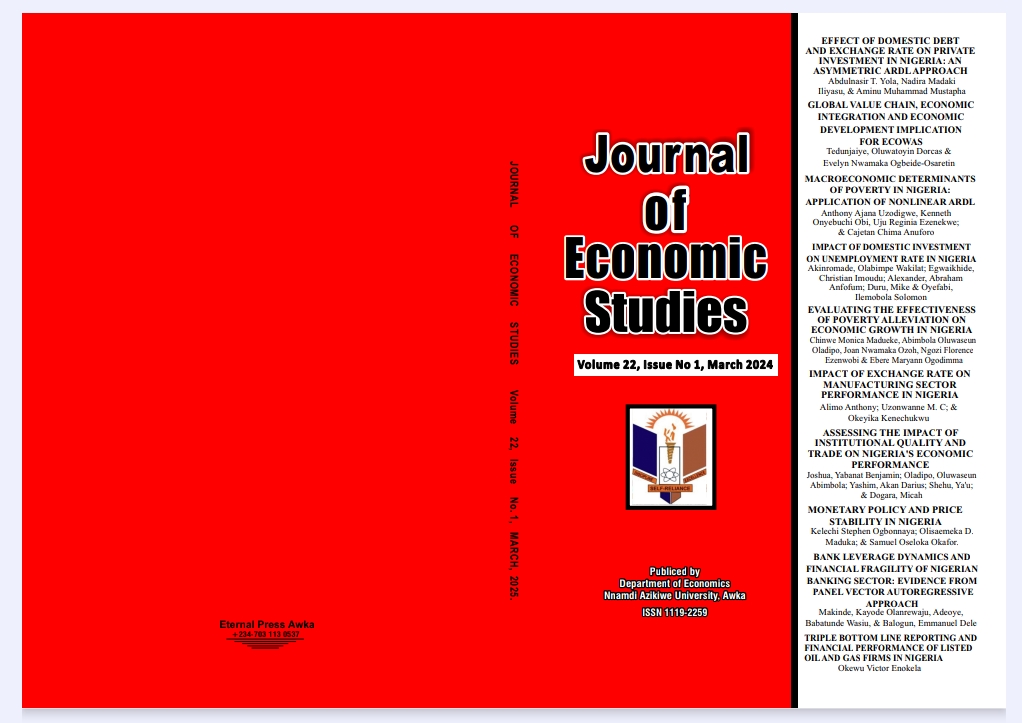EVALUATING THE EFFECTIVENESS OF POVERTY ALLEVIATION ON ECONOMIC GROWTH IN NIGERIA.
Keywords:
Poverty alleviation, economic growth, multiple regression, NigeriaAbstract
Poverty remains a critical barrier to sustainable economic growth in Nigeria, despite decades
of poverty alleviation initiatives. Evaluating the effectiveness of these efforts is essential for
guiding policy decisions. This study analysed the impact of poverty alleviation on economic
growth in Nigeria from 1999 to 2023, using data sourced from the Central Bank of Nigeria
(CBN) Statistical Bulletin and the World Bank database. A multiple regression analysis was
employed to explore the relationships between Poverty Alleviation Expenditure (PAE),
Domestic Investment (DIN), Foreign Direct Investment (FDI), Credit to Small and Medium
Enterprises (CSME), Per Capita Income (PCI), and Gross Domestic Product (GDP). The
findings revealed that PAE and DIN positively influence GDP, reflecting their importance in
driving economic growth. CSME also has a positive impact on GDP, indicating that credit
availability to small and medium enterprises enhances economic activities and growth.
Similarly, PCI positively affects GDP, underscoring the role of improved individual income
levels in fostering economic expansion. Conversely, FDI negatively affects GDP, suggesting
inefficiencies in its management. The overall regression model highlights the significant
collective impact of these variables on GDP, confirming the importance of targeted economic
interventions. Based on these results, the study recommends, the need for sustained and
strategic investment in poverty alleviation programs to foster inclusive economic growth in
Nigeria.


